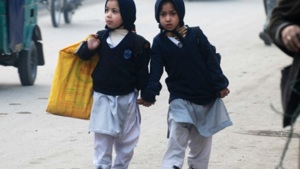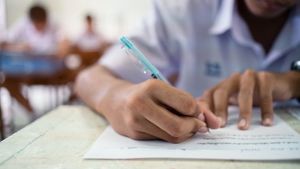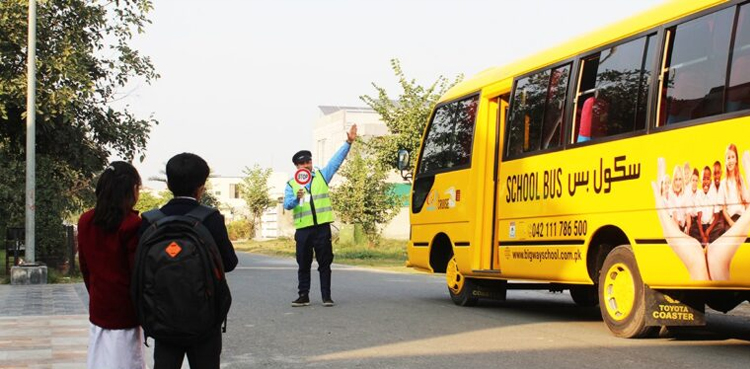
In a landmark move set to transform the educational landscape of Punjab, Chief Minister Maryam Nawaz Sharif has unveiled a comprehensive series of initiatives, emphasizing accessibility, quality, and student well-being. These reforms include pioneering free transport services, nutritious meal programs, and significant infrastructure enhancements across government schools.
Free Transport and "On-Wheels Montessori" Launched
A key announcement is the launch of a van service for government school students, specifically designed to benefit children residing in remote and underserved areas. This initiative aims to dismantle geographical barriers to education, ensuring that no student is left behind due to lack of transport.
Adding to this revolutionary approach, the provincial government will introduce "on-wheels Montessori schools." These mobile learning units are expected to further increase educational access, particularly for young children in areas where traditional school access is challenging. Chief Minister Sharif has instructed officials to swiftly craft a detailed strategy for Punjab's first-ever organized school transport network, reaffirming her strong dedication to its rollout.
Recognizing Excellence: "School and Teacher of the Month" Awards
To foster a culture of high performance and accountability, a new "School and Teacher of the Month" award scheme has been greenlit. This program will evaluate schools and educators based on critical parameters such as discipline, teaching quality, the availability and utilization of lab facilities, and overall academic outcomes. This initiative is designed to incentivize excellence and elevate educational standards across the province.
Unprecedented Growth Through Public-Private Partnerships
Punjab’s education sector is experiencing record-breaking growth, largely attributed to the successful public-private school outsourcing model. Education Minister Rana Sikandar Hayat highlighted impressive figures, reporting a 99% rise in student enrollment and a 114% increase in teaching staff through this innovative partnership. This strategic initiative has also become a significant job creator, generating over 60,000 employment opportunities for the province's educated youth.
Punjab now proudly boasts the world's largest education-based public-private partnership, with a staggering 1.3 million students enrolled within a mere 16 months. The successful outsourcing model is set for massive expansion, with an ambitious plan to include 10,500 more schools in the coming year. This builds directly on the overwhelming demand seen in the initial phase, which attracted 40,000 applications for 5,700 schools.
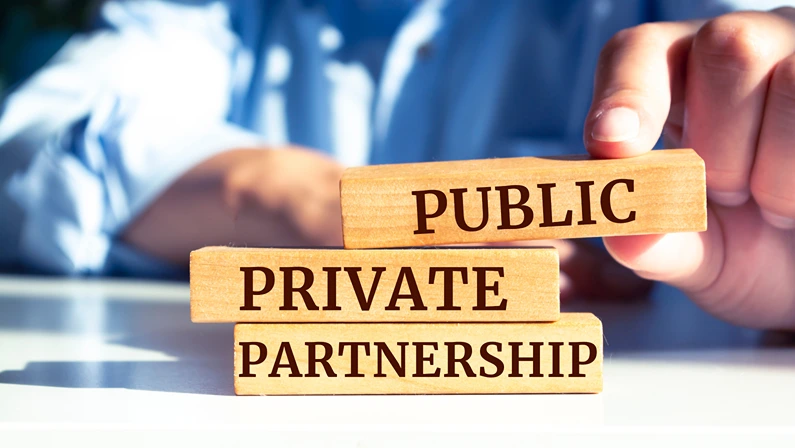
Massive Infrastructure Development Underway
The provincial government's commitment to improving learning environments is evident in the substantial infrastructure upgrades already completed and those planned:
-
413 new classrooms constructed
-
Over 5,000 classrooms renovated
-
2,887 school roofs repaired
-
254,000 square meters of boundary walls constructed
-
Over 50 schools successfully transitioned to solar power
-
Provision of 1,643 water tanks, 5,830 coolers, and 9,303 blackboards
Enhancing Student Welfare: Nutrition and Early Learning
Significant strides are being made in student welfare through targeted nutrition programs and expanded early childhood education. In select districts like Faisalabad, students in outsourced schools are benefiting from midday meals through community-based models, addressing critical nutritional needs. Furthermore, over 70,000 furniture sets have been provided to create more comfortable and conducive classroom environments.
For early childhood development, 10,000 classrooms have already been equipped for early childhood learning, underscoring the government's focus on foundational education.
Expanding Specialized Education and Nutrition Programs
The Punjab Education Endowment Fund (PEEF) is spearheading a pilot program for Tech Schools, introducing specialized technical institutions. This initiative has ambitious plans to expand into rural areas, aiming to equip students across the province with crucial, job-ready skills. Additionally, an English Conversation Programme, aligned with IELTS Level 4, is being rolled out, aiming to benefit 300,000 students over six months, enhancing their global communication capabilities.
The prestigious Nawaz Sharif Centre of Excellence is set to significantly expand its capacity from 240 to 1,500 students, offering advanced learning opportunities. A vital new School Meal Programme is also slated for launch in Dera Ghazi Khan, Layyah, Lodhran, Bhakkar, Mianwali, and Bahawalnagar. This program plans to include highly nutritious items such as milk, biscuits, and energy bars, ensuring comprehensive student well-being.
Digital Education and Modernization
The push for modernization extends to digital education and school management. By year-end, hundreds of new classrooms and over 400 new toilet blocks for girls’ schools are expected to be completed, addressing fundamental needs. Future plans also include:
-
Establishment of 6,000 STEM and science labs to foster innovation and scientific inquiry.
-
Ongoing teacher and student training, integrating modern educational tools and methodologies.
-
Continuous staff rationalization efforts to optimize school management and efficiency.
Chief Minister Maryam Nawaz Sharif reiterated the paramount importance of high-quality teacher training and issued directives to standardize school entrances across Punjab. This initiative aims to create a consistent, welcoming, and safe environment for all students, reflecting a holistic approach to educational improvement.










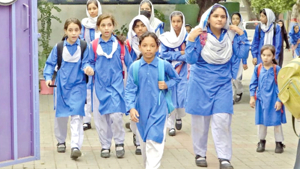

 (1).jpg)

